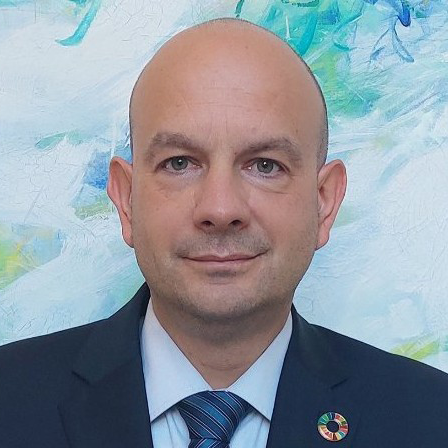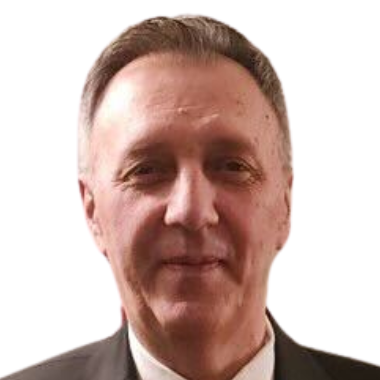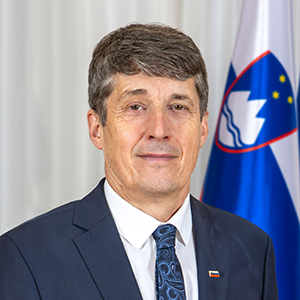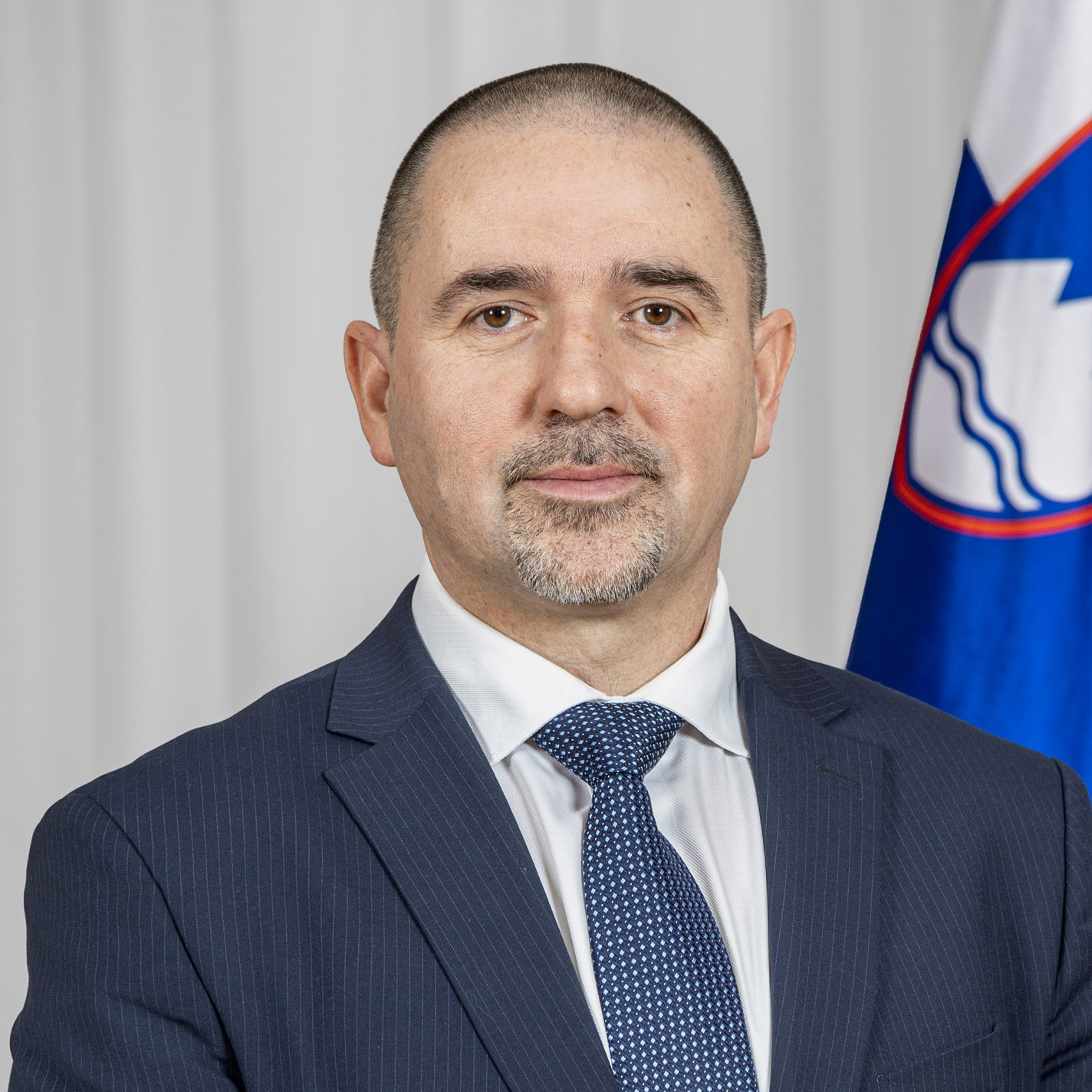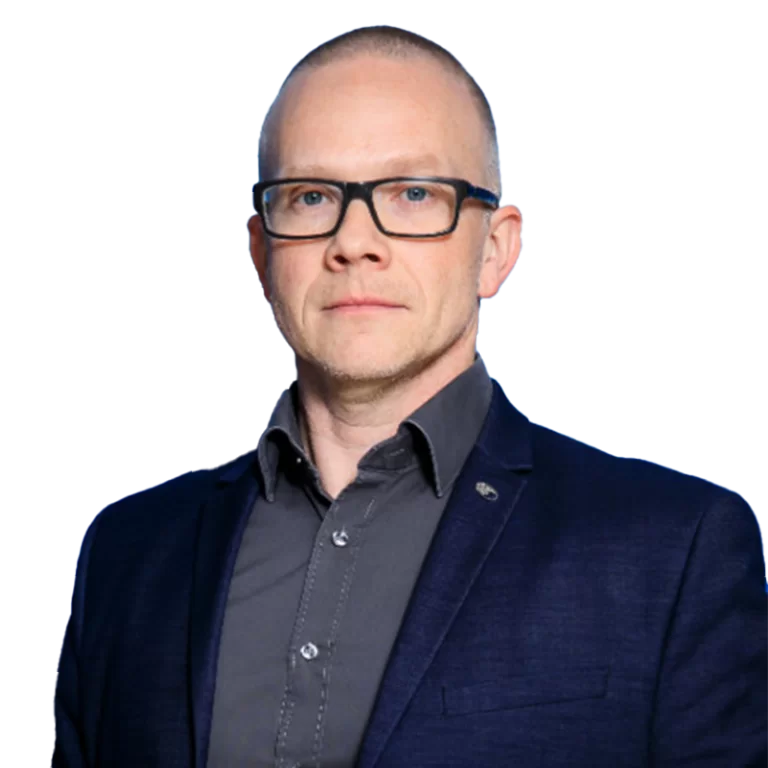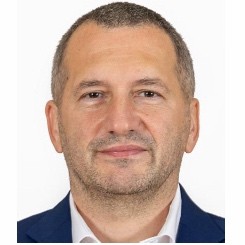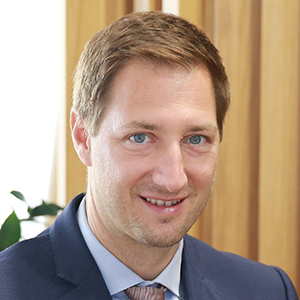Location: Conference Hall E

Tuesday, 21 October 2025
- 08:30Visitors' registration
- 09:00Event Opening & Security Check
- 10:00 – 10:45Official Opening of the Conference and the International SIDEC Fair
- 14:00 – 15:30Strategy for the Development of the Defense Industry and Technological Base in the Republic of Slovenia (round table)
Wednesday, 22 October 2025
- 08:30Visitors' registration
- 09:00Event Opening & Security Check
- 10:00 – 12:00Future Technologies in R&D
- 14:00 – 15:45Artificial Intelligence
Thursday, 23 October 2025
- 08:30Visitors' registration
- 09:00Event Opening & Security Check
- 10:00 – 12:00Energy Efficiency and Resilience
- 14:00 – 16:20Cybersecurity
*The entire conference programme will be conducted in English without interpretation
Friday, 24 October 2025
- 10:00Solemn conclusion of the official part of SIDEC 2025
- 17:00Official closing of the SIDEC 2025 event
Don't miss out: Presentations of Exhibitors on the Open Forum in C1!
OPEN FORUMTuesday, 21 October 2025
SOLEMN OPENING OF SIDEC 2025
The guests will be addressed by:
CONFERENCE PROGRAMME
Tuesday, 21 October 2025
PRESENTATION OF THE STRATEGY FOR THE DEVELOPMENT OF THE DEFENCE INDUSTRY AND TECHNOLOGY BASE IN THE REPUBLIC OF SLOVENIA
The Strategy for the Development of the Defence Industry and Technological Base in the Republic of Slovenia represents the first strategy of its kind in the Republic of Slovenia and is based on the Resolution on the overall long-term programme for the development and equipping of the Slovenian Armed Forces until 2040.
The purpose of the Strategy for the Development of the Defence Industry and Technology Base in the Republic of Slovenia is to promote and strengthen the Slovenian defence industry and its integration into the EU environment and beyond. A strong Slovenian defence industry will offer the market greater availability of defence products and services and, in accordance with its capabilities, contribute to the reliability of domestic and foreign supply chains and supplies.
In order to encourage the inclusion and integration of small and medium-sized enterprises at home and internationally and to create equal competitive conditions, it is necessary to increase strategic investments in key domestic companies in the defence industry and to increase the role of the state or state influence on their management. To support the effective development of the national defense industry, it is necessary to ensure appropriate forms of financing for companies.
Therefore, on 12. 9. 2025, the company DOVOS, družba za obrambo, varnost in odpornost, d.o.o. (company for defence, security and resilience), was established and entered into the court register. It is 100% owned by the Republic of Slovenia and its main activity will be investments in projects and companies with the aim of supporting research and development of the defense industry, strengthening security and increasing resilience. The company will participate in coordinating the development, consolidation and coordination of the defense industrial capabilities of the Republic of Slovenia in the field of defense, security and resilience.
With the aim of monitoring, analyzing and directing changes in the field of the defense technological and industrial base of the Republic of Slovenia and resilience, including monitoring the implementation of the strategy, the Strategic Council of the Republic of Slovenia for Defense Technology, Industrial Base and Resilience will be established.
MODERATOR
PANELISTS
PANEL: Wednesday, 22 October 2025 / MORNING
PANEL: FUTURE TECHNOLOGIES (R&D)
Join us at the central event, where we will present key future technology trends in the field of defense and security. The panel will provide an in-depth overview of strategic guidelines shaped by leading European organizations, including the European Commission, the European Defence Agency (EDA), NATO, and the Ministry of Defence of the Republic of Slovenia. We will focus on strategic directions for the future of the defense industry, highlighting the need for collaboration between research, industrial, and political stakeholders at all levels – from research and development to the implementation of advanced defense technologies and their industrialization. At the same time, we will focus on political frameworks that shape defense in the EU, NATO, and Slovenia, and their crucial role in strengthening defense resilience, innovation, and technological progress.
The Faculty of Mechanical Engineering of the University of Ljubljana will contribute with a presentation of key research platforms, including the newly established Defense and Security Platform, which enables cutting-edge research and development in the fields of defense and space technologies.
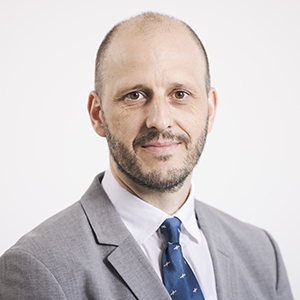



















PANEL: Wednesday, 22 October 2025 / AFTERNOON
PANEL: ARTIFICIAL INTELLIGENCE
Join us for an event about the role of artificial intelligence (AI) in defense. We will discuss the role of AI in training and simulations, where it enables the creation of realistic and adaptive learning environments and operational scenarios, which significantly improves the readiness of forces for diverse and complex situations. A more detailed presentation about the use of AI avatars for training direct communication in hostile situations is the keynote topic. The challenges of autonomous systems and awareness of their surroundings and spatial orientation are solved with AI by connecting to multitude of sensors and sensor data fusion in real time. This significantly improves situational awareness, with multi-domain data integration and use of advanced methods for detecting, recognizing and tracking objects while properly deciding in critical situations. You will connect with experts from industry, research and defense sectors and gain insight into future of AI in defense.
Discover how AI-powered synthetic humans are advancing mission readiness by accelerating operator decision-making, enabling high-fidelity judgmental training, refining mission-critical communication, and adapting to complex, high-consequence environments.


This presentation focuses on the application of technologically advanced solutions that, with minor adaptations, can be successfully utilized across various sectors and industries, including defense.
We will primarily explore the use of artificial intelligence for anomaly detection and predictive maintenance in manufacturing, forecasting sea tides and river flows, and generating synthetic data. What can we learn from other industries, and how can we transfer successfully implemented innovations into the defense sector?


AI enhances the value that OPTIMA — our multi-agent simulation environment for data farming and analytics of adversarial scenarios on the operational level — delivers to our clients. We share our experience in applying AI across three key areas: modeling agent behaviors, analyzing simulation outputs, and informing agent decision-making.


We will present the applicability of geospatial artificial intelligence for the automatic detection and recognition of military and civilian personnel, vehicles, and objects, as well as the importance of integrating decentralized AI systems that effectively support decision-making. Additionally, we will introduce a completed research and innovation project by the Ministry of Defence of the Republic of Slovenia, which utilizes sensors (such as visual sensors, thermal sensors, LiDAR, etc.) mounted on unmanned aerial systems to successfully detect both military and civilian objects in real time.
Coauthors: Domen Mongus, Mitja Žalik, Andraž Krivic, Andrej Mesner.


We present a vision-only approach for real-time camera pose estimation using eye-tracking glasses equipped with passthrough camera. The system extracts deep convolutional features with SuperPoint and matches them to a prebuilt 3D map of the vehicle interior, followed by PnP pose solving with RANSAC for robust localization. Implemented in a multi-threaded capture pipeline, it supports real-time processing for multiple passengers and visualizes ego-pose trajectories, demonstrated through a driver attention-tracking application in a JLTV simulator.


Autonomous robots operating in underwater and aerial environments without access to GNSS signals encounter significant sensing and localization challenges due to the inherent complexity of these environments. Traditional localization methods often fall short under such demanding conditions, emphasizing the need for robust yet cost-efficient solutions tailored specifically to these scenarios. In this talk I will overview the key challenges of deploying vision-based and acoustic localization approaches in realistic underwater and aerial settings. I will also highlight recent research trends and open questions in the field and give insights from our research at the Visual Cognitive Systems (ViCoS) laboratory focused on practical robotic localization in these challenging environments.


We will demonstrate the use of the ModalAI Starling 2 UAV for autonomous localization and real-time mapping of its surroundings using the SLAM (Simultaneous Localization and Mapping) method. The key advantage of this solution is its ability to accurately determine its position without relying on external navigation systems such as GPS, which is particularly crucial in military operations conducted in unpredictable or disrupted environments.Furthermore, the prototype incorporates artificial intelligence techniques—specifically, the YOLO neural network—to enable fast and reliable recognition of strategically important or potentially dangerous objects. As a result, the UAV automatically detects military vehicles, critical infrastructure, suspicious items, and other threats, transmitting the gathered information to command systems in real time.This approach facilitates early detection and continuous monitoring of changes on the ground, thereby enhancing security, increasing situational awareness, and providing an additional tactical advantage in the surveillance and response to aerial threats.
PANEL: Thursday, 23 October 2025 / MORNING
PANEL: ENERGY EFFICIENCY & RESILIENCE
Join us for a focused event on advanced energy solutions that bolster operational readiness and resilience in defense. We will highlight cutting-edge research in hydrogen, battery technologies, alternative fuels, and integrated multi-energy systems. These innovations aim to reduce logistical burdens, lower emissions, and ensure a reliable energy supply under demanding conditions. Hear how new approaches can minimize noise and thermal signatures, enhance off-grid capabilities, and ultimately strengthen mission effectiveness. Connect with experts from the defense, research, and industry sectors to help shape a cleaner, more secure future.


Energy Efficiency and Green Transition Division Head at the Ministry of Defence of the Republic of Slovenia.
He joined the Slovenian Armed Forces in 1992. Throughout his career, he has led divisions at the Force Command, the General Staff, and the Directorate of Logistics. His international military experience includes participations at the NATO operations KFOR and ISAF. He leads and directs several international and national projects in the field of energy efficiency of the defence sector.




With over 25 years of experience, he fosters innovation by connecting industry, research, and government.
By leading and coordinating numerous national and international defence projects related to the green transition and energy resilience, such as EDF and EDA Category B projects, and actively contributing to EDA initiatives like CF SEDSS, IF CEED, and the Energy and Environment CapTech as Industry Rapporteur, he promotes multinational collaboration to strengthen Europe’s defence ecosystem.


Maja Kuzel holds the position of Project Officer Energy and the Project Manager of the fourth phase of the Consultation Forum for Sustainable Energy in the Defence and Security Sector (CF SEDSS IV) at the European Defence Agency. CF SEDSS is a European Commission-funded initiative run and managed by EDA, supporting the European ministries of defence in advancing resilient and efficient energy models.
Previously, she has worked in the project management, education, communications and translation sectors, including as part of the Community Assistance for Reconstruction, Democratisation and Stabilisation (CARDS) Programme in Croatia, and at the Council of the EU in Brussels as linguistic administrator.
She holds a Master’s degree in English language and comparative literature, awarded by the Faculty of Humanities and Social Sciences in Zagreb, Croatia, as well as a Master of Advanced Studies in political sciences (European integration, European politics stream), awarded by VUB, Institute for European Studies. She has co-edited and contributed to various publications, including: Hadjisavvas et al. (2024), Shaping the future: Energy Transition in the Defence Sector (European Defence Agency, CF SEDSS); R. Tavares da Costa, E. Krausmann, C. Hadjisavvas, Impacts of climate change on defence-related critical energy infrastructure, 2023; Giannopoulos G., Jungwirth R., Hadjisavvas C., et.al., Fortifying Defence: Strengthening Critical Energy Infrastructure against Hybrid Threats, 2023.
PANEL: Thursday, 23 October 2025 / AFTERNOON
PANEL: CYBER SECURITY
The panel on cybersecurity will cover a range of critical topics. Key discussions will include the role of cybersecurity in modern defence strategies, with insights from a EU official, and the opportunities for dual use in cybersecurity, focusing on how commercial sector achievements can be applied to defence, highlighted by the BRICO project. The current cyber threat landscape will be examined, addressing state-sponsored attacks and cyber espionage.
The Captech Cyber session will introduce the REMUDO project, a platform designed for situation awareness. Collaborative cyber defence initiatives, such as the Pesco CRRT project, will be discussed, emphasizing the development of a common cyber capability for responding to incidents and crises. Additionally, the challenges of cybersecurity in critical infrastructure during the quantum computing era will be addressed.


Marko Hölbl is an associate professor of computer science and vice dean of research at the Faculty of Electrical Engineering and Computer Science, University of Maribor (UM FERI). His research focuses on cybersecurity, cryptography, and privacy protection. He lectures at UM FERI, the Faculty of Criminal Justice, and the Faculty of Natural Sciences and Mathematics (FNM), covering information and network security and digital forensics topics. He has been a visiting researcher at TU Graz and INSA Orléans. Marko serves as Secretary General of CEPIS LSI and EAEEIE and a member of ECSO, SRIP GoDigital, and the Cybersecurity Section of the Chamber of Commerce and Industry of Slovenia. He is also a member of the Government Office for the Protection of Classified Information’s Advisory Working Group on Cryptography. Marko has actively participated in several research projects under Horizon Europe, Digital Europe, the European Space Agency, and other programmes.


Andrea Pompili, a cybersecurity specialist with 20 years of experience, began his career as a programmer. He transitioned to enterprise software development, then computer security, working on projects for Wind Telecommunication and Telecom Italia. Andrea led multiple cybersecurity initiatives for the Military and Government markets, diving into malware research, hybrid network attack and defence patterns, and cyber detection and response innovations. He has been part of the OWASP ZAP project. He is now the Chief Scientist Officer at CY4Gate, overseeing cyber intelligence and integrated Cyber/EW activities, contributing to multiple international cybersecurity working groups.


Ajda Vodlan
Ajda Vodlan holds a master’s degree in Defence Studies and is a Deputy Secretary at the Ministry of Defence. As of September 2025, she has taken over the leadership of the Department for Military Technology, Research, and Development and represents the Ministry of Defence as the Slovenian R&T Director at the European Defence Agency, Head of Delegation to the European Commission for the European Defence Fund, and as a member of the Board of Directors of NATO DIANA.
Mihael Nagelj
Mihael Nagelj is a cybersecurity expert working in SeKV (Cybersecurity Section at the Association for Informatics and Telecommunications of the Slovenian Chamber of Commerce and Industry) and is the current president of the section. His work includes cooperation with experts and organisations in the field of cybersecurity, where he helps companies acquire knowledge, experience and technologies for comprehensive management of cyber risks. He actively participates in various initiatives and working groups. He is the current industry representative in EDA CapTech Cyber and a member of ECSO working groups.


Milan Gabor is a recognised cybersecurity expert, ethical hacker, and founder of Viris, a company specialising in information security, penetration testing, and security awareness. With extensive experience in red teaming, threat analysis, and security consulting, he is a frequent speaker at international conferences and an active trainer in the field of cybersecurity. Milan is known for his practical, hands-on approach and dedication to improving organisational resilience against modern cyber threats.


Andrea Pompili
Andrea Pompili, a cybersecurity specialist with 20 years of experience, began his career as a programmer. He transitioned to enterprise software development, then computer security, working on projects for Wind Telecommunication and Telecom Italia. Andrea led multiple cybersecurity initiatives for the Military and Government markets, diving into malware research, hybrid network attack and defence patterns, and cyber detection and response innovations. He has been part of the OWASP ZAP project. He is now the Chief Scientist Officer at CY4Gate, overseeing cyber intelligence and integrated Cyber/EW activities, contributing to multiple international cybersecurity working groups.
Matjaž Breznik
Matjaž Breznik is a business development and innovation leader with over 15 years of experience across the public sector, startups, and high-tech industries. From leading smart infrastructure and energy projects at GeoM Matjaž Breznik s.p. to driving innovation in augmented and mixed reality, he has built a strong foundation in bridging technology and strategy. At CREAPLUS, he leads strategic business development and R&D initiatives in AI, cybersecurity, and cryptography. He focuses on cross-cutting defence and critical infrastructure projects that enhance cyber resilience and technological sovereignty across Europe.


Matej Rabzelj is a cybersecurity researcher at the Laboratory for Telecommunications, Faculty of Electrical Engineering, University of Ljubljana. His work focuses on cyberattack modelling, penetration testing, and deception technologies. He has been involved in national, EC, and EDA projects assessing cyber threats in critical infrastructures. He has co authored research articles and conference papers, developed security solutions, and participated in NATO cyber defence exercises.

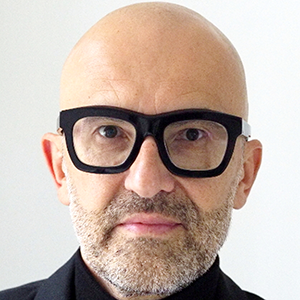
Peter Ceferin
Peter Ceferin is the CTO at Smart Com and a recognised expert in ICT systems for infrastructure environments. With over 30 years of experience in designing and implementing network and security solutions in critical infrastructure environments – particularly in the power industry – he is one of the key figures shaping secure and reliable ICT ecosystems. He places special emphasis on introducing advanced, specialised security solutions into systems where cyber resilience is essential for the uninterrupted operation of the organisation.
Egon Milanič
Egon Milanič is a computer science graduate with an MSc in information security. Started as a developer for microcontrollers, led tech support and the Information Security Group at Slovenian Customs. Worked as a Key expert and later tested security solutions in the industry. Founding member of the Government Information Security Administration and Office. Since 2024, he has headed the Advanced Technologies and Information System Security Division at the Government Office for the Protection of Classified Information.


Marko Hölbl is an associate professor of computer science and vice dean of research at the Faculty of Electrical Engineering and Computer Science, University of Maribor (UM FERI). His research focuses on cybersecurity, cryptography, and privacy protection. He lectures at UM FERI, the Faculty of Criminal Justice, and the Faculty of Natural Sciences and Mathematics (FNM), covering information and network security and digital forensics topics. He has been a visiting researcher at TU Graz and INSA Orléans. Marko serves as Secretary General of CEPIS LSI and EAEEIE and a member of ECSO, SRIP GoDigital, and the Cybersecurity Section of the Chamber of Commerce and Industry of Slovenia. He is also a member of the Government Office for the Protection of Classified Information’s Advisory Working Group on Cryptography. Marko has actively participated in several research projects under Horizon Europe, Digital Europe, the European Space Agency, and other programmes.
*The organizer reserves the right to change the programme. The entire Conference Programme will be conducted in English without interpretation.
OPEN FORUM SIDEC
Don’t miss short, 15-minute Exhibitors’ Presentations on the Open Forum in C1 on Wednesday and Thursday.
Wednesday, 22 October 2025
Špela Šikovec, moderator
Opening speech: Tatjana Šikovec, President of French-Slovenian Business club
Keynote address: Mrs Fabienne Runyo, Ambassador of the French Republic in Slovenia
PANELISTS:
- Frédéric Adelaide, Safran group
- Matej Miklavčič, ARMAS d.o.o.
- Peter Butoln, C-Astral
- Primož Peterca, Guardiaris
- Tomi Ilijaš, Arctur d.o.o.
- Albans Des Courtils, KNDS France
- Tamara Balažič, SPIRIT
Thursday, 23 October 2025
